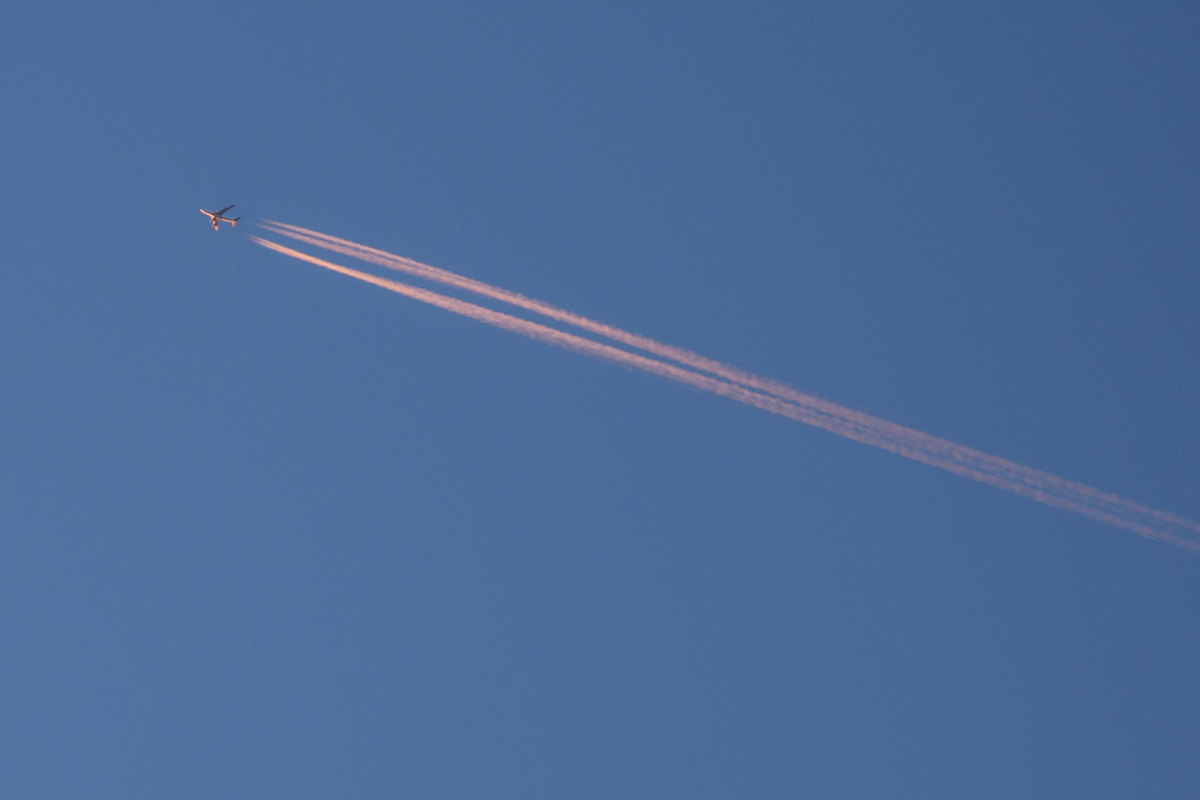Skift Take
Greening the airline industry involves more than just slashing carbon emissions. Contrails are warming the Earth today.
When travelers buy an airplane ticket, they’re often made aware of the carbon emissions from their trip. Google Flights and some airlines give fliers an estimate when they check fares, and carriers like British Airways and Qantas offer customers the option to buy carbon offsets or contribute to a “climate fund” in the booking process.
These carbon disclosures are important: Global airlines have set a goal of net-zero emissions by 2050. And while the industry as a whole contributes only about 2% of the world’s carbon emissions, it’s still no small task to effectively decarbonize a carbon-heavy industry.
Planes run on fossil fuels — a lot of them. That’s why most airlines are focused on the prospect of low-emission sustainable aviation fuels, or SAF. But SAF production at the scale needed may be decades away.
To go truly “green,” carriers need to look at more than just carbon. Contrails, those fluffy clouds that trail some planes as they fly overhead, can speed up global warming. That’s no small concern given that the Earth keeps setting new heat records, with this July ranking as the hottest in the history of record keeping.
“The emerging scientific consensus is that the net impact [of] nighttime contrails are much more warming than the daytime contrails are cooling, and possibly more warming to the point where they might equal 1% of all human-induced global warming,” American Airlines Vice President of Sustainability Jill Blickstein said on a recent TD Cowen podcast episode.
Contrails typically form when an airplane flies through very cold and humid air. In those conditions, the soot and water particles in the engines’ exhaust can turn into contrails and create new cirrus clouds. These conditions more often occur at night, and in certain regions of the world, like over the North Atlantic or the southern U.S.
Not all contrails are bad for the environment. Ones that keep the Earth’s heat in, like those formed late in the day or at night, can increase planetary warming by as much as a third, researchers at George Mason University in Virginia found in a 2019 study. Alternatively, those produced in the morning can actually reduce warming by reflecting the sun’s rays back into outer space. The same study found that, at least over the U.S., only about 15% of flights produce contrails.
The consensus view is that contrails do more to warm the planet then they do to cool it. That makes them an important target for airlines as they work to reduce climate impact.
“Absolutely there is a global warming impact,” United Airlines Director of Decarbonization Rohini Sengupta said, referring to contrails. The challenge, she added, is that more needs to be known about their climate impact and how to mitigate them.
The obvious answer — simply flying around areas where contrails could form — is not necessarily the best solution. That could potentially mean longer flight routes, more fuel use and, thus, more carbon emissions that offset any benefit from not creating contrails.
Mitigating contrails is the focus of much research today. American has tested flying at lower altitudes — contrails typically form between about 32,000 and 42,000 feet — while the George Mason study looked at flying at higher altitudes. Both found potential for reducing contrail formation but there is, as yet, no consensus on the best way to reduce or eliminate them.
The adoption of SAF, as well as hydrogen-powered or electric aircraft, could help reduce contrails. The exhaust from the low-emission fuels has fewer soot particles in it than traditional fossil fuels. That, many believe, could potentially reduce contrail formation.
But the industry faces a very immediate need to mitigate contrails, especially as the Earth warms in real time.
“If you are able to get it done without increasing fuel burn, and improving performance, that’s huge,” TD Cowen airline analyst Helane Becker said on the podcast with American’s Blickstein.
The Daily Newsletter
Our daily coverage of the global travel industry. Written by editors and analysts from across Skift’s brands.
Have a confidential tip for Skift? Get in touch
Tags: airlines, american airlines, british airways, climate change, emirates, jetblue airways, qantas, united airlines
Photo credit: Contrails tail a plane. (Caribb/Flickr) Caribb / Flickr
